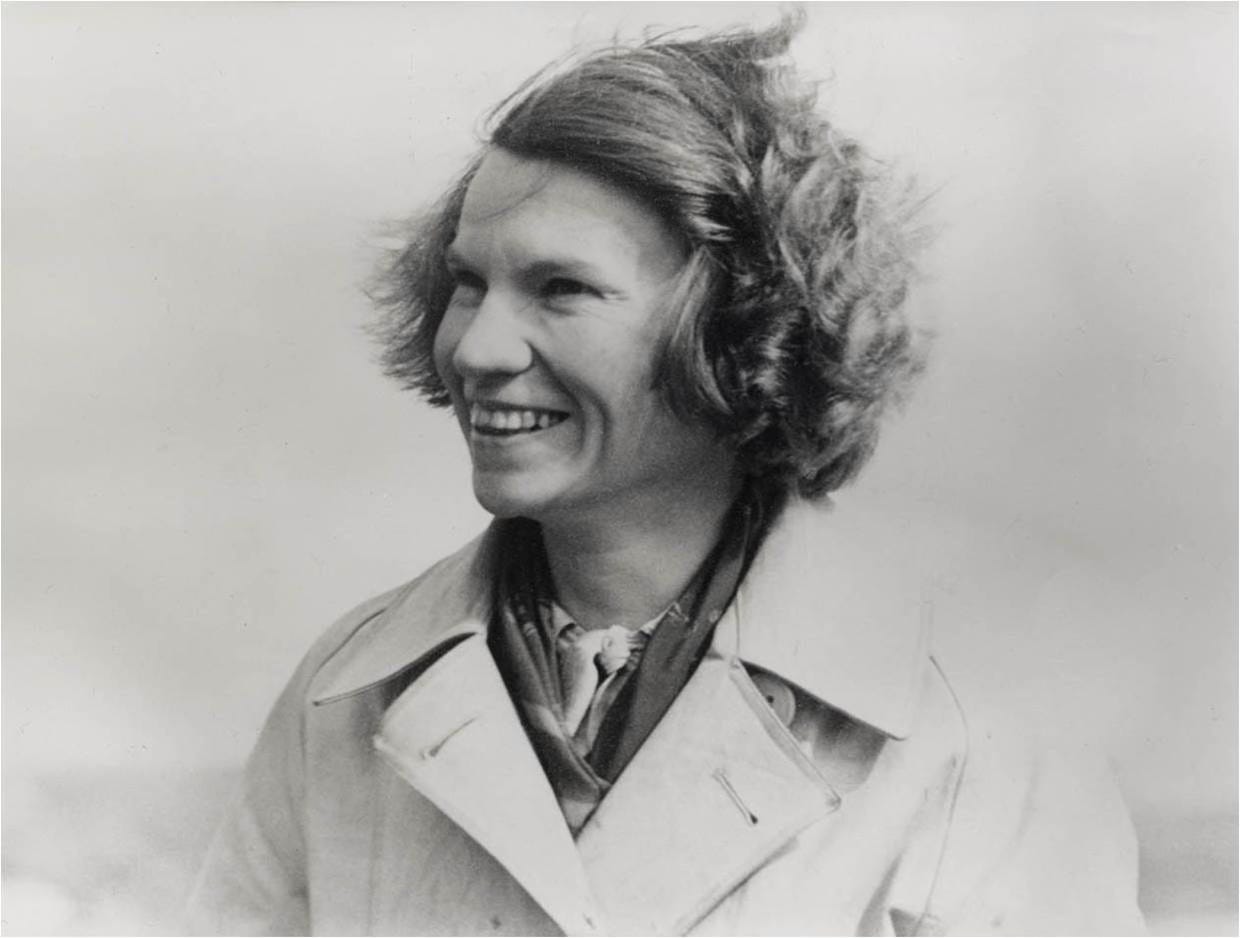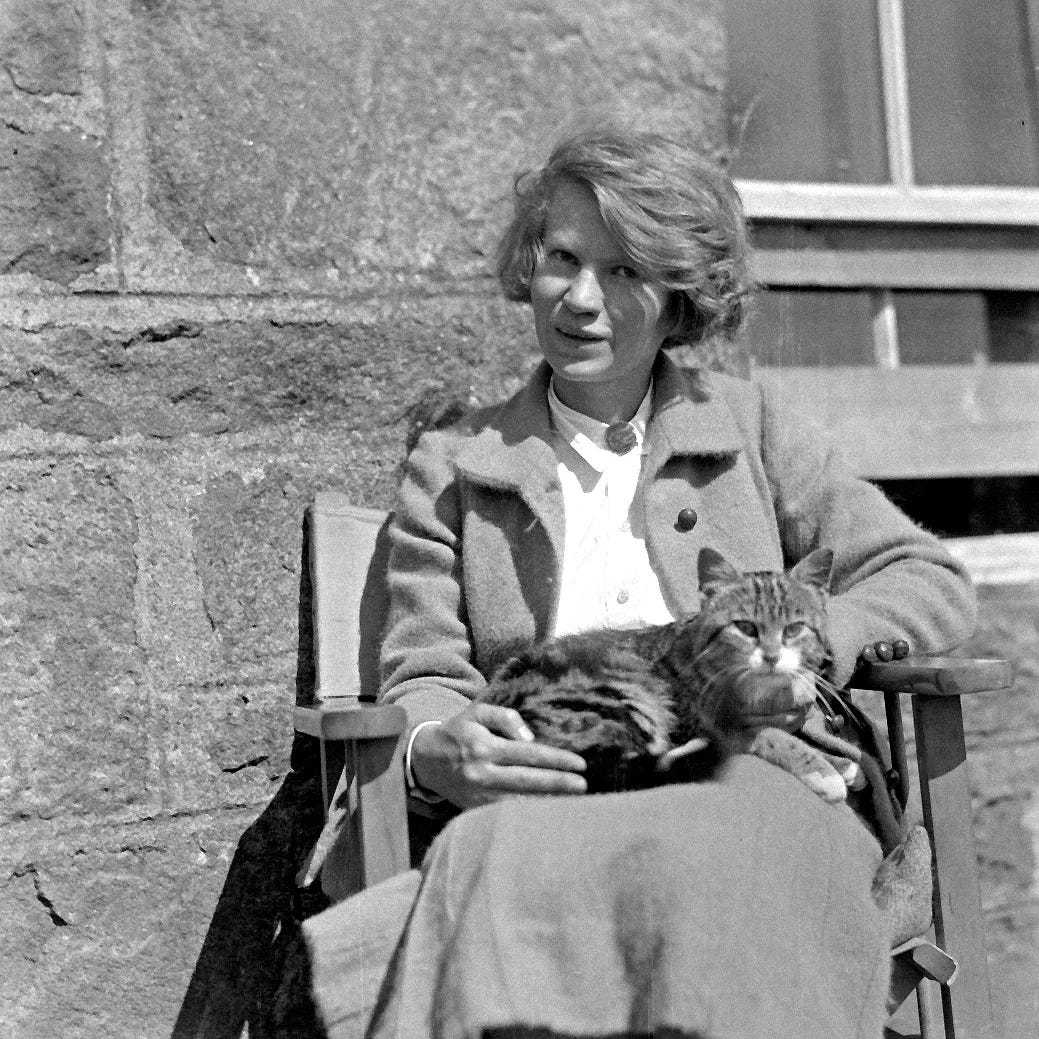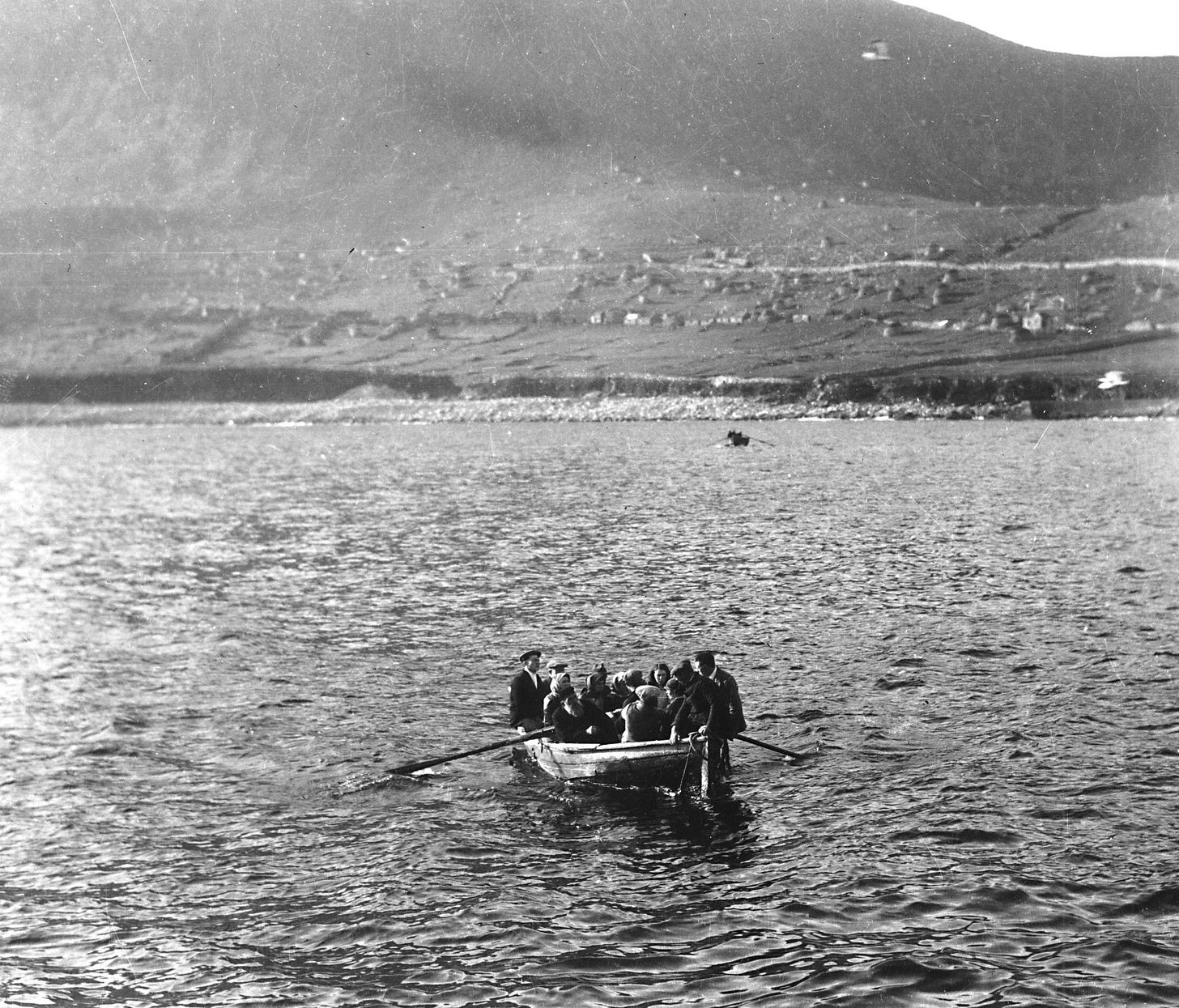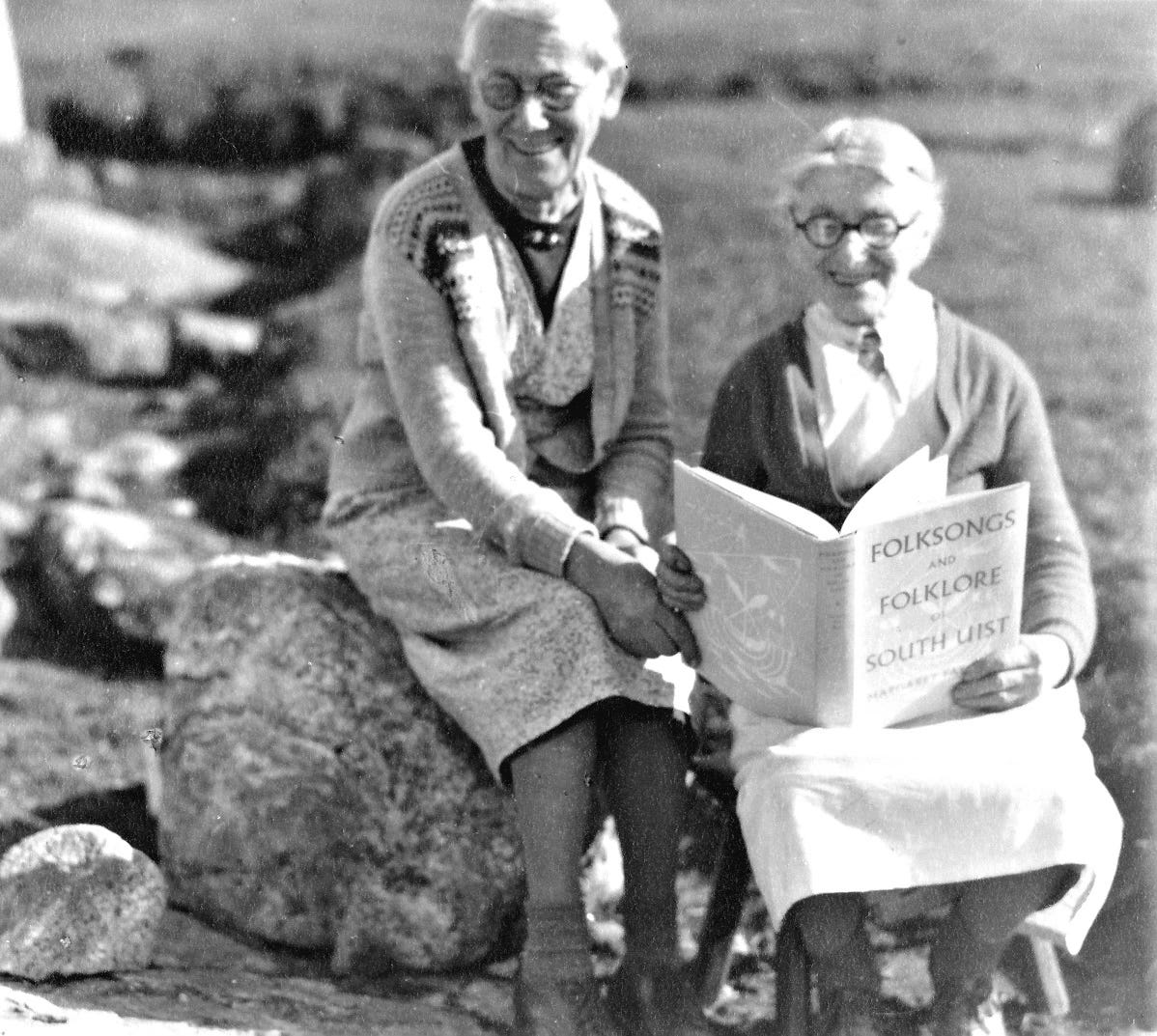I met Margaret Fay Shaw in Canna just after her hundredth birthday. We were filming her for a television programme. We spent three days together with her, filming and talking, with Aonghas Pàdraig Campbell asking the questions. It was one of the things I most enjoyed doing.
She talked about when she was young, her family in Pennsylvania, her moving to Scotland and how she became interested in Gaelic song. Eventually, in the 1920s, she moved to South Uist to learn Gaelic and the songs. She lived with two sisters, Màiri and Peigi Anndra, who shared their songs with her. I write more about how Margaret came to live on Uist here.
Her book “Folksongs and Folklore of South Uist” is an amazing collection of songs, folklore, traditions and stories.
We would film a little, then she would get up and play the piano for a while. Or she would stop for a little smoke. At eleven o’clock each day, she would leave, and return with a tray full of glasses of whisky. The soundman cretainly didn't 'put them to his ear'.
Margaret would also spend some time each day on the typewriter, writing letters. It was an ‘Imperial’ typewriter, I think, that she had got from Compton Mackenzie in 1962. She would type just the way she played the piano. I said that to her and she replied, “Yes… and I spell by ear extremely well.”
She had a beautiful piano upstairs and I said to her, I like that piano. ‘Broadwood’ was written on it. She said, “Yes, it used to belong to Beethoven.” Oh yes, I said... Beethoven....
There were many things like that, around every corner in the house. I asked about some unusual mirrors that were there, and she said the frames had been made by French POWs from beef bones, around the time of the Napoleonic War.
I was working on something about St Kilda at the time, and she said she had photographs. She brought out these photographs from the day in 1930 when the St Kildans left the island. She was there. There are more than nine thousand negatives in her archive. I think she should be better known as a photographer.
But it was just how much she loved life, and how much she loved being amongst people, that has stayed with me most. She said she was as hard as Pennsylvania steel, and she had to be, to do what she did.
This is the last thing she said to me:
“Life. Wonderful life. But you’ve got to do it yourself. You’ve got to do it all the way yourself.”
Here is a photograph of the tradition bearers Màiri and Peigi Anndra with Margaret’s book. Isn’t it wonderful.
END.
Read the Gaelic version of this post here.




